A blood test for parasites is the obligatory procedure for everyone who works in health care, education, animals, or plans to visit educational institutions. In contrast with the studies of stool, modern blood worms provide a more accurate result, provide an opportunity to assess the degree of infestation and monitoring of the effectiveness of the treatment. Carrying out surveys of this type fast, and don't need a lot of time to decipher.
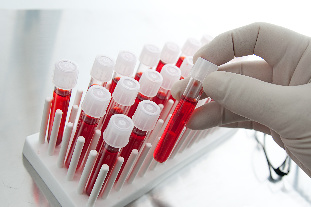
When and to whom it is necessary to pass a blood test for helminthiasis?
Sad medical statistics suggests that approximately for every 3 people, the problem of worms is critical. Home transportation, office and educational institutions, unwashed fruits and vegetables, handshakes — all these familiar to every adult and child cases and are the main source of infection. Even if the symptoms do not manifest themselves immediately and, in any case, parasites have a very negative impact on the human body: due to lack of appetite, contribute to the development of allergies, pain in the body is damaged, poor digestion, sometimes, can cause death. In view of this, it is necessary to pass on parasites tests for each person (preferably every year).
You can't fuck with the exam, if there are characteristic symptoms of helminthiasis:
- sudden weight loss;
- hives;
- frequent nausea;
- aversion to food;
- a strong decrease of the hemoglobin;
- irritability or insomnia in children.
In addition, you can also call the group of people which are necessary every 6-8 months to check the blood. These in particular are:
- the people who live in areas with frequent outbreaks of helminthiasis;
- the people who work in educational institutions and dealing with children;
- the medical professionals;
- all the catering companies;
- people who work with animals, as well as their family members (veterinarians, workers at meat processing plants, the shepherds, the breeders, the circus, the employees and the zoo, etc.).
In addition, the blood worms have to pass all the children of school and preschool age, which will soon have to attend school clubs. To investigate the blood parasites has pregnant women, children before the vaccination. In addition, repeat testing should occur after this course of treatment against parasites.
IFA as one of the most effective methods of diagnosis
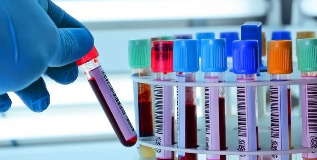
The most popular and reliable analysis specialists, today called on the enzyme immunoassay of blood for parasites. The main objective of this high precision of the laboratory method to identify antibodies to a particular type of parasites. The same immunoglobulin (also called antibodies) are a natural reaction of the immune system, and are intended to neutralize the negative of the agent.
To make an accurate diagnosis, and find out what the intensity of the disease parasites how long it lasts, specialists manage with 3 different types of immunoglobulins:
- Class A. Detected in the blood of a child or adult, approximately 2-4 weeks after the infection. Almost 80% of them are excreted in the mucous membranes and only 20% stays in the blood. After treatment, immunoglobulin And may not submit more than a month. If a second test for parasites again detects them, then the disease occurred in a chronic form.
- Class M. the More quickly react to the presence of the parasite. In blood detected on day 5 after infection. However, they won't stay long — up to 2 months, and then gradually show. Therefore, the doctor can conclude that the presence of acute helminthiasis in the moment.
- Class G. Appear relatively late — after 1 month after helminth infection. However, it was shown more than six months. Are used to understand how long a person suffers from helminthiasis.
In comparison with other methods of laboratory, ELISA has several advantages, in particular:
- high precision;
- the ability to determine the stage of the disease;
- versatility;
- the possibility of use for the mass screening of the population;
- fits the adult and the child.
Enzyme-linked immunosorbent assay appropriate to use to identify these types of helminthiasis as:
- giardiasis;
- trichinosis;
- leishmaniasis;
- ascariasis;
- cysticercosis;
- opisthorchiasis;
- echinococcosis and others.
Hemo scan to detect parasites
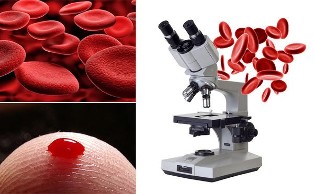
Hemo — scan - one of the most modern tests for parasites in children and adults. With it is possible to identify the following:
- the specific form of the parasite;
- the structure and the number of leukocytes;
- the number of red blood cells;
- the degree of viscosity of the blood;
- the immune system;
- the presence of fungi and viruses.
Unlike ELISA, haemo scanning provides a fence only a few drops of blood from the finger. The liquid is placed in a sterile glass, and then examined with a microscope. The number increases reaches 1800-2000 times. You don't need any additional treatment (the use of enzymes, dyes, drainage, etc.). In modern clinics of the image displayed on the monitor, but because the patient has the opportunity to observe the research process, to check the presence of fungi and helminths. Shocking can be a photo of a larvae of parasites. If necessary, make a photo or a video of the study.
It is the Express method, because the information about the state of his health, the patient can learn in 10-15 minutes.
It is worth noting that as an independent method of identification of parasites hemo scan is not actually used. The fact is that the human body can accommodate different types of parasites with different location. Not in all cases, the migration of the larvae in the blood. To suspect the presence of worms allows for a reduction in the number of red blood cells (as some parasites feed on blood and nutrients), increased white blood cell count (indicates the body's fight against the parasite), the dense plasma.
Other methods of diagnosis
If you use the method 1 to identify the bot fails, the doctor will recommend additional laboratory tests:
- Serologic analysis. It also refers to the immunological variants, and ELISA. However, unlike the second, the first has the objective of exploring not blood, and serum. In order to obtain information, the doctor has to use the reaction between antibodies and antigens. Serological analysis is not performed for all types of worms, but just the fact that the doctor has a suspicion. If the human body is a parasite, a specialist will notice a clear reaction.
- PCR diagnosis. It is not possible to determine the degree of development of helminth infection and are not recommended for the establishment of all types of parasites. With its help it is possible to find only if there is in the human body simple worms. The main task of the technician, in this case, the search of the DNA and RNA of the parasite. It does not matter, the parasite is dead or alive. To carry out for the research is the possibility of any material, in particular, the urine, blood or feces. For a greater reliability of this type of analysis can give a couple of times.
- Vegetative resonance test. The method is based on the identification of the resonance between the human body and the consumption of drugs. These last are the information carriers of different types of worms. All the data of frequency of each species of parasites was recorded by scientists in 1989 for the art (as it is called in this method) is performed only in laboratory conditions, and provides an opportunity to identify, what is the situation of the human immune system in a specific period of time. So, with the help of the VRT doctor can find out if the body is suffering from allergies whether it is toxic, bacteria, parasites influence or not.
- A count complete blood. Too high or too low hemoglobin, decreased red blood cell count, an increase in the number of eosinophils are the main characteristics that allow to suspect the presence of the parasite in the human body.
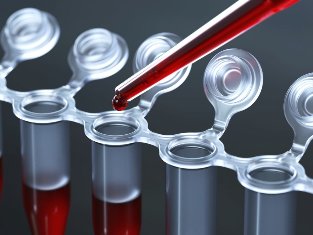
How to prepare for the study, and how to decipher the results?
Characteristics of delivery of the analysis depends on the method that should be used, and what kind of parasites are suspected. In general, the blood is from a vein, and in some cases (hemo scan) of a finger. Only 10-15 ml of blood to establish the diagnosis.
To get the most accurate information, it is necessary to observe certain rules of delivery of clinical trials:
- On the eve of the day of blood collection the patient should not consume too much salty, fatty foods (because it can change the level of white blood cells); the foods that can cause allergies and honey, citrus (increase in eosinophils, which also occurs when helminthiasis); foods rich in essential oils of garlic, onion, ginger (which affects the activity of parasites).
- It is better to move the material on an empty stomach. Allowed in a small amount of clean water.
- It is essential to inform your doctor about the medications that were used during the last 2 weeks.
- It is not recommended for a couple of days before the tests to use any physiotherapy treatments (including chest x-ray, ultrasound, x-ray).
- At least one week before blood sampling to give up alcoholic drinks and medicines that contain high concentrations of ethyl alcohol.
- It should not be abandoned at least 2 hours before the test.
If strong helminthiasis suffer pregnant, and the baby examination is necessary. The blood extracted from the umbilical cord or the placenta.
For the research, normally 2-3 days. A little more time (5 days) has been passed, in case that the package runs immunological studies on different types of parasites.
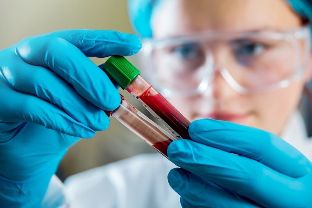
Transcript should only be a specialist. The simplest interpretation remains hemo scanning, and PCR diagnosis. Or detect the parasite or its larvae or not.
Difficult situation, with a method that should be called IFA. The doctor is obliged to take into account the superfamily of 3 groups. Thus, the acute form of the disease can be said if there will be a combination of: immunoglobulin M positive, and the class A or G can be positive or negative. On the chronic form misleading data: immunoglobulin M does not exist, and the class A and G can be positive or negative.
In this case, if any of the above-mentioned tests showed a positive result, delay the treatment of helminthiasis is not worth. After the full prescribed course of treatment requires repeated testing, but this should be done approximately 2-3 months after the medication. Not knowing what tests must pass, it is best to consult a doctor-internist, gastroenterologist or other specialists.



































